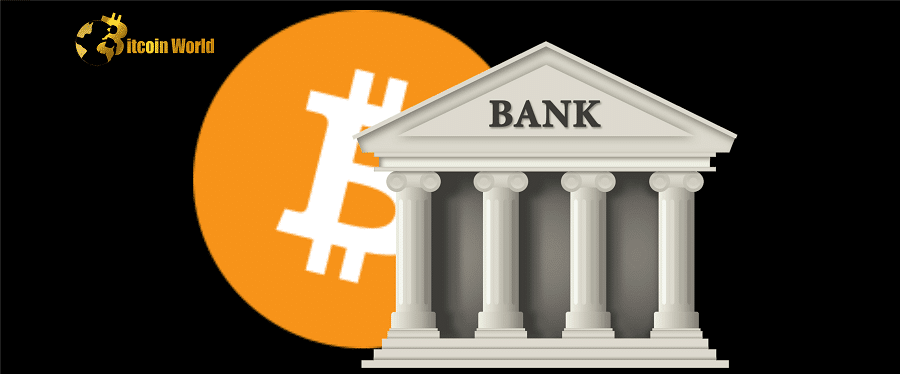Are you noticing more buzz around Bitcoin and cryptocurrencies lately? You’re not alone! Millions of Americans are diving into the world of digital assets, and guess what? Your local banks are paying attention too. Driven by growing customer demand, a fascinating trend is emerging: US banks are actively exploring the crypto market, all under the watchful eye of the Federal Deposit Insurance Corporation (FDIC).
Why are Banks Suddenly Interested in Crypto?
It’s simple – customer demand! People want access to Bitcoin and other crypto services, and banks are realizing they need to adapt to stay relevant. This growing interest signals a major shift, highlighting how intertwined the crypto world is becoming with our traditional financial systems.
Just take a look at these numbers:
- 52 million Americans: That’s how many people had already invested in Bitcoin and crypto by January 2023, according to FDIC stats.
- 136 Banks: This many banks are either considering or already involved in various crypto-related activities.
This isn’t just a fleeting interest. A recent report from the Office of Inspector General (OIG), an independent watchdog within federal agencies, emphasizes the increasing involvement of banks in the digital asset space. This report underscores a crucial point: as banks venture into crypto, it’s vital to ensure they understand and manage the associated risks, especially when it comes to protecting your deposits.
The FDIC’s Role: Not a Crypto Regulator, But a Key Player
Now, let’s clear up a common misconception. The FDIC isn’t directly regulating cryptocurrencies themselves. Their primary role is deposit insurance. Think of them as the safety net for your bank deposits. They step in to protect your money if a bank fails. In fact, the FDIC is a massive force in the US financial system:
- Insures nearly $10 trillion in deposits.
- Oversees over 4,700 banks.
- Manages a $125 billion Deposit Insurance Fund (DIF).
This fund is what safeguards your bank accounts and helps resolve issues if a bank runs into trouble. So, while the FDIC isn’t setting crypto rules, their involvement is critical because they are responsible for maintaining stability and trust in the banking system as it interacts with digital assets.
Crypto Custodians and the FDIC: What’s the Connection?
Here’s where it gets interesting. There’s been a lot of discussion about the FDIC potentially regulating cryptocurrency custodians. What are custodians? Think of them as the crypto equivalent of banks for traditional assets. They hold and manage digital assets like Bitcoin on behalf of individuals or institutions.
The question is, should the FDIC oversee these crypto custodians in a similar way they oversee banks? This is a complex issue being debated as regulators try to navigate this evolving landscape.
Bitcoin and Crypto: A Market Snapshot
To understand the scale of this digital asset movement, let’s look at the market size (data as of the original article writing time):
- Bitcoin Market Cap: Approximately $461 billion
- Total Crypto Market Cap: Around $1.05 trillion
- Bitcoin Price: Trading at roughly $23,908 USD
These figures, from sources like Coingecko and TradingView, highlight the significant value and growing mainstream acceptance of cryptocurrencies like Bitcoin.
Navigating the Regulatory Maze: Collaboration is Key
The FDIC recognizes the potential risks that cryptocurrencies could pose to the broader financial system. Historically, they’ve approached crypto with caution. However, the increasing customer demand is pushing banks to explore this space, necessitating a balanced approach.
To move forward responsibly, the FDIC needs to work hand-in-hand with other regulatory bodies. Collaboration is essential to:
- Provide clarity on digital asset regulation.
- Ensure exams and policies address consumer risks.
- Clarify the relationship between deposit insurance and digital assets.
Looking Ahead: A Proactive Regulatory Stance?
The US government is actively working to create a clear legal framework for the crypto industry. President Biden’s recent Executive Order is a significant step in this direction. While the specifics are still unfolding, this order signals a more proactive approach to managing crypto risks.
This evolving regulatory landscape will have major implications for banks and other financial institutions involved in the crypto space. While uncertainty remains, one thing is clear: the integration of traditional finance and digital assets is accelerating, and the FDIC is playing a crucial role in shaping its responsible development.
In Conclusion: Crypto and Banks – A Future Forging Ahead
The increasing interest of US banks in cryptocurrency is more than just a passing trend. It’s a sign of the times, reflecting the growing importance of digital assets in our financial world. As banks explore Bitcoin and other cryptos under the watchful eye of the FDIC, the focus is on balancing innovation with stability and consumer protection. The journey of integrating crypto into the mainstream financial system is underway, and the coming years will be pivotal in defining its shape and impact.
Disclaimer: The information provided is not trading advice, Bitcoinworld.co.in holds no liability for any investments made based on the information provided on this page. We strongly recommend independent research and/or consultation with a qualified professional before making any investment decisions.


